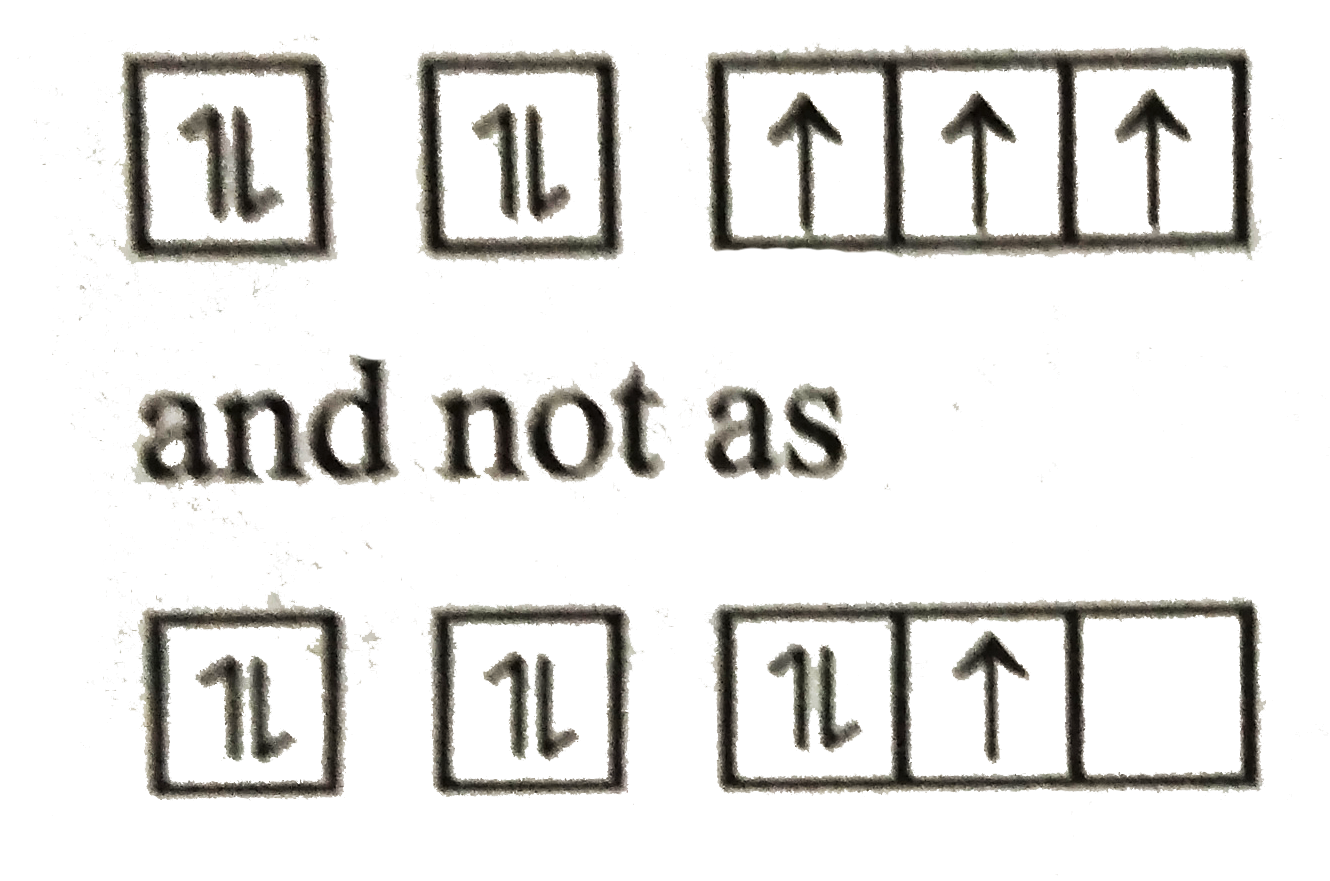Complete Solutions to Assertion Reason of chapter ATOMIC STRUCTURE of Class 11 book with complete answers and questions
| Class 11 | CHEMISTRY |
| Chapter | ATOMIC STRUCTURE |
| OP TANDON | Assertion Reason |
| Number Of Questions | 22 |
| Academic Year | 2023-24 |
Assertion (A) :F atom has less electron than `CI^(Theta)` atom
Reason (R ) : Additional electrons are repelled more effectively by `3p` electron in `CI` atom than by` 2p` electron in F atom
View SolutionStatement: Nuclide `._(13)^(30)Al` is less stable than `._(20)^(40) Ca`
Explanation: Nuclides having odd number of protons and neutrons are general unstable.
View SolutionAssertion (A) : The first IE of Be is greater than that of B
Reason (R ) : `2p` orbitals is lower in energy than `2s`
View SolutionAssertion (A) : The electronic configuration of nitrogen atom is represented as

Reason (R ) : The electronic configuration of the ground state of an atom is the one which has the greatest multiplicity
View SolutionStatement : For ` n=3,l` may be ` 0,1` and ` 2,` and m may be` 0, +- 1` and `+- 2`.
Explanation : For each value of (n) there are ` 0` to ( n-1) possible values of `l ,` and for each value of `l` there are (0) to ` +- l` values of (m).
View SolutionStatement : For ` n=3,l` may be ` 0,1` and ` 2,` and m may be` 0, +- 1` and `+- 2`.
Explanation : For each value of (n) there are ` 0` to ( n-1) possible values of `l ,` and for each value of `l` there are (0) to ` +- l` values of (m).
View SolutionAssertion : An orbital cannot have more than two electrons.
Reason : The two electrons in an orbital create opposite magnetic fields.
View SolutionStatement-I : The configuration of B atom cannot be `1s^(2) 2s^(3)`.
Because
Statement-II : Hund's rule demands that the configuration should display maximum multiplicity.
View SolutionAssertion (A) : The ionization energy of N is more than that of O
Reason (R ) : Electronic configuration of N is more stable due to half - filled `2p` orbitals
View SolutionAssertion (A) : p orbital is dumb- bell shaped
Reason (R ) :Electron presents in p orbital can have any one of three value of magnetic quantum number i.e. `0,+1, or - 1`
View SolutionAssertion (A) : A spectral line will be seen for `2p_(x)`-`2p_(y)` transition
Reason (R ) : Energy is raleased in the form of wave of light when the electron drops from `2p_(x)` , to `2p_(y)` orbital.
View SolutionAssertion: Ionisation potential of `Be` (atomic no.4) is less than `B` (atomic no.5).
Reason: The first electron released from `Be` is of p-orbital but that from `B` is of s-orbital.
View SolutionStatement-I : In Rutherford's gold foil experiment, very few `alpha`-particles are deflected back.
Because
Statement-II : Nucleus present inside the atom is heavy.
View SolutionAssertion (A) : Limiting line is the balmer series has a wavelength of `364.4 nm`
Reason (R ) : Limiting line is obtained for a jump electron from `n = infty`
View SolutionAssertion (A) : Each electron in an atom has two spin quantum number
Reason (R ) : Spin quantum numbers are obtained by solving Schrodinger wave equation
View SolutionAssertion (A) : There are two spherical nodes in `3s` orbital
Reason (R ) : There is no planar nodes in `3s` orbital.
View SolutionAssertion (A) : In an atom, the velocity of electron in the higher orbits keeps on decreasing
Reason (R ) : Velocity of electron in inversely proportional to the radius of the orbit
View SolutionAssertion (A) : If the potential difference applied to an electron is made `4` time , the de Broglie wavelength associated is halved
Reason (R ) : On making potential difference `4` times , velocity is doubled and hence `lambda` is halved
View Solution(A) Angular momentum of 1s,2s,3s, etc., all have spherical shape.
(R) 1s,2s,3s, etc. all hae spherical shape.
View SolutionAssertion (A) : The radial probability of` 1s` electrons first increases,till it is maximum at `53 Å` and then decreases to zero
Reason (R ) : Bohr's radius for the first is `53 Å`
View SolutionAssertion (A) : On increasing the intensity of incident radiation, the photo electrons eject and then KE increases
Reason (R ) : Greater the intensity means greater the energy which in turn means greater the frequency of the radiation.
View SolutionAssertion (A) : A spectral line will be seen for `2p_(x)`-`2p_(y)` transition
Reason (R ) : Energy is raleased in the form of wave of light when the electron drops from `2p_(x)` , to `2p_(y)` orbital.
View Solution
Assertion Reason questions and complete solutions for chapter ATOMIC STRUCTURE of G.R. BATHLA & SONS CHEMISTRY (HINGLISH) of Class 11
All Exercises from OP TANDON Class 11 CHEMISTRY ATOMIC STRUCTURE
- Assertion Reason
- Example
- Illustrations of Objective Question
- Integer Answer Type Questions
- Integer Type Question
- Linked Comprehension Type Question
- Matrix matching Type Question
- Miscellaneous Numerical Examples
- Objective Question Level-B
- Practice Problems
- Questions with single correct Answer
- Self Assement
- Set-2
- Solved Examples
- Some Solved Examples